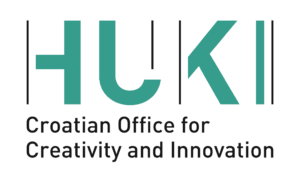The business coaching market was estimated to be worth more than $15 billion in 2019, up by 5.6 percent compared to the previous year according to recent estimates by IBISWorld. However, this seems to be just the tip of the iceberg. The global e-learning market, which mainly involves online coaching and digital learning platforms, is expected to reach a combined value of more than $325 billion by 2025.
This endlessly expanding industry provides extremely lucrative opportunities for those with the know-how to make the right moves. Interestingly, the sector is spearheaded by a few countries in Western Europe.
The International Coaching Federation (ICF) defines coaching as “partnering with clients in a thought-provoking and creative process that inspires them to maximize their personal and professional potential.” Coaching is a distinct service and differs greatly from therapy, consulting, mentoring, or training. The ICF describes itself as the leading global organization dedicated to advancing the coaching profession by setting high standards, providing independent certification and building a worldwide network of trained coaching professionals. As the world’s largest organization of professionally trained coaches, it offers the only globally recognized, independent credentialing program for coach practitioners. ICF credentials are awarded to professional coaches who have met stringent educational and experience requirements and have demonstrated a thorough understanding of the coaching competencies that set the standards in the profession, says the organization.
Coaching is booming in Europe.
According to the 2016 ICF Global Coaching Study, Western Europe accounts for the lions share of the coaching market. In total, around 35 percent of professional coach practitioners operate in Western Europe, compared to just over 33 percent in North America. Eastern Europe, on the other hand, comes in at third place, comprising around 8.4 percent of the global coaching market.
Much of the reason behind this huge market share is owed to the huge proportion of sponsored clients coaches in Western Europe. As it stands, a huge number of individuals receive coaching as part of their employment, education or training. In total, coach practitioners in Western Europe reported that around 60 percent of their clients were paid for by a third-party, whereas this number shrinks to just 50 percent in North America.
Nevertheless, the B2C sector has meanwhile become the key market for many coaches and consultants. These coaches often specialize in a specific discipline, including health, wealth, business, spirituality, personal development, and leadership, allowing businesses and clients to better hire a coach for virtually every aspect of modern life. In fact, many entrepreneurs are hiring multiple coaches at the same time to increase the probability of personal success to the highest possible level.
Trends in 2020
The industry-wide research study Executive Coaching by the ICF surveyed nearly 1,000 organization coaching practice managers, internal coaches and external coaches on a variety of topics. All respondents agreed that leadership development programs with additional coaching will most likely be the ensuing trend over the next few years. We see more organizations designing coaching into existing leadership development programs. On average, leader-as-coach training (training leaders in organizations on coaching skills) was the second most likely trend. Third was team coaching – coaching all members of the team and/or developing that team as a team.
According to the same study, artificial intelligence eventually replacing human coaches was seen as the least likely future trend (38 percent), with a predicted commoditization of coaching fees rated as slightly more likely (55-57 percent of respondents).There are some major differences between the three respondent groups: coaching for millennial leaders was seen as much more likely among external coaches (85 percent) and internal coaches (82 percent) than among organization practice managers (71 percent); internal coaching was favored more by internal coaches (no. 3, 84 percent) than by organization practice managers (no. 8, 72 percent). Ranked fourth by organization practice managers, organizations centralizing/streamlining executive coaching given fewer vendors, contrasts with seventh place rankings from internal and external coaches.
Anyone can be choach now
Another trend is startup coaching. Marketing coaching is just one of the few things a startup involves. SMBs are very vulnerable in their first two years, and many committed entrepreneurs have learned that it is essential to have the right preparation in place before you start – that may come from life coaching, for example – but also a ‘support group’ as you go. And this support group could mean a mentor, coaching for the fields that are less familiar or simply coaching you to stay in a productive state.
Apart from that, personal branding and brand positioning represent further aspects that are often underestimated. According to Forbes writer Caroline Castrillon, personal branding was never more important than now. As a consequence of search engines and social media, the first impression of a person is based on online data. With the proliferation of social media and the gig economy, it has become essential for everyone to embrace personal branding.







